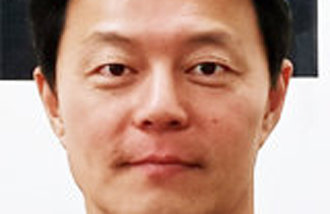Smartphones lead Samsungs record quarterly performance
Smartphones lead Samsungs record quarterly performance
Posted July. 06, 2013 07:11,
Samsung Electronics Co., the worlds top maker of smartphones, memory chips and flat-panel TVs, posted its record quarterly sales revenues and operating profits despite a global economic slump.
Samsung estimated Friday it posted a record quarterly operating profit of 9.5 trillion won (8.4 billion U.S. dollars) out of 57 trillion won (50 billion dollars) in sales revenue in the second quarter of this year. On a daily average, the company sold 626.4 billion won (548.5 billion dollars) worth of goods and raked in 104.4 billion won (91.4 billion dollars) in operating profits. The operating profit ratio of 16.66 percent was also the companys highest ever. It was the first time that Samsung posted a quarterly operating profit of over 9 trillion won (7.9 billion dollars).
Samsung has been continuing to break its records of quarterly sales and operating profit since the first quarter of 2012, except the January-March period of this year when its operating profit declined because of provisioning for lawsuits with Apple Inc. Considering the sales performance during the first six months of this year, Samsung is expected to achieve sales revenue of 200 trillion won (175.1 billion dollars) for the second straight year in 2013.
Despite the record sales performance, the companys stock price fell 3.8 percent Friday from the previous day, as operating profits failed to meet domestic securities companies expectations of over 10 trillion won (8.8 billion dollars). Samsung plans to announce final second-quarter results in late July.
○ Smartphones lead record sales
Samsungs record sales performance was led by its Internet-Mobile division, which is in charge of its smartphone business. Despite some foreign brokerage houses negative outlook for the sales performance of Samsungs latest Galaxy S4 smartphones, the electronics giant beat the expectations.
The local mobile phone industry estimated that Samsung sold approximately 72 million smartphones worldwide in the April-June period, after selling nearly 7 million units in the previous quarter. Among the smartphones, the Galaxy S4 is Samsungs best-selling model ever, as the company sold more than 10 million units in less than one month after the models release and 20 million in just two months. Due to the brisk sales of the Galaxy S4, Samsung sold 141.4 million smartphones during the first six months of this year, nearly half of its target of selling 300 million units.
However, a fiercer competition in the smartphone market has taken its toll on the companys profit ratio. It seems that the Internet-Mobile divisions operating profit ratio will not increase significantly in large part because it spent huge amounts of marketing expenses, said Byun Han-joon, an analysts at KB Investment & Securities Co.
○ Recovery in semiconductor market
Samsungs Digital Solution division, which is in charge of its chip-making business, is also expected to have performed well. In the global semiconductor market, the prices of dynamic random access memory (DRAM) chips for personal computers rose about 74 percent in May from January. The prices for mobile DRAM chips also increased during the same period. Samsung, the worlds top maker of memory chips, was the largest beneficiary of the recovery in the memory chip market.
The chip-making business is expected to perform better in the July-September period than in the second quarter. Analysts say that the demand for electronic goods tend to increase in the latter half of a year and that global mobile phone makers are expected to unveil new models.
It seems that Samsungs Consumer Electronics division, which produces such goods as television sets and refrigerators, failed to show a significant improvement in its performances amid a global economic slump. However, analysts say that the division is faring relatively well, considering Japanese TV makers, including Sharp and Panasonic, are implementing restructuring or seeing their global market shares shrinking.







